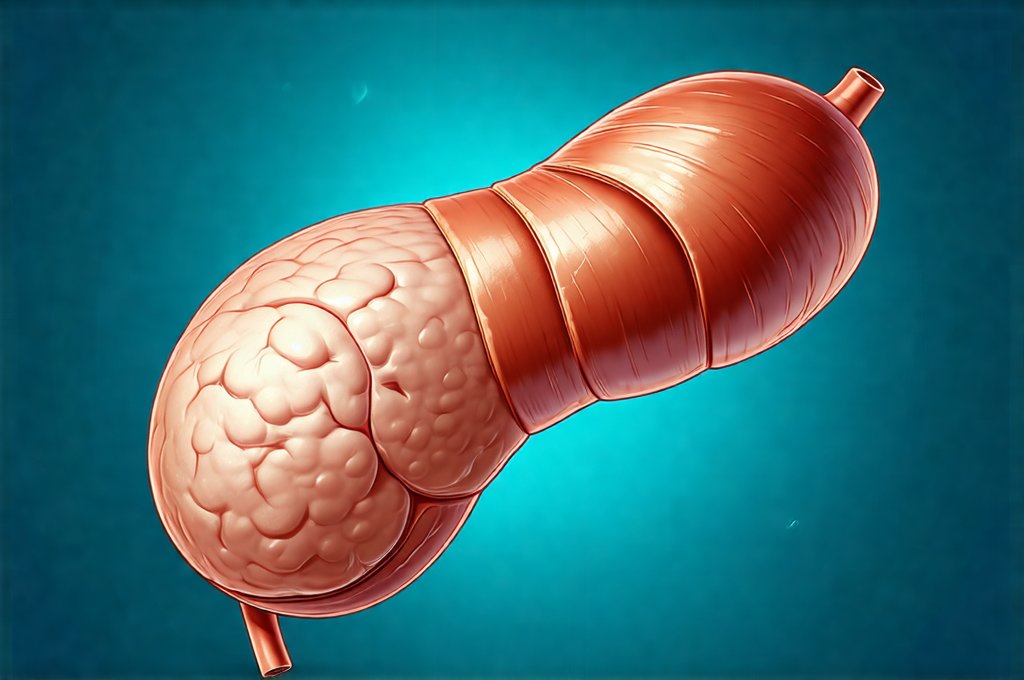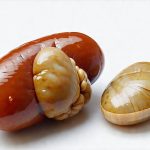Digestive gas is a common experience, often dismissed as an unavoidable part of life. However, excessive or disruptive gas can significantly impact quality of life, causing discomfort, bloating, and even social anxiety. While many factors contribute to gas production – diet being primary among them – the role of often-overlooked organs like the gallbladder in regulating digestive processes is gaining increasing attention. A healthy digestive system relies on a complex interplay between various organs, each contributing to efficient food breakdown and nutrient absorption. When one component falters, it can ripple through the entire system, leading to imbalances that manifest as uncomfortable symptoms like excessive gas.
The gallbladder, though small, plays a crucial role in this process. It’s primarily responsible for storing and concentrating bile produced by the liver. Bile is essential for emulsifying fats – breaking them down into smaller droplets so they can be more easily digested and absorbed in the small intestine. This seemingly simple function has profound implications for gut health, motility, and ultimately, gas production. An unhealthy gallbladder or impaired bile flow can disrupt fat digestion, leading to fermentation in the colon and subsequent gas formation. Understanding this connection is key to addressing persistent digestive discomfort and promoting optimal gut function. You might find more information on apple cider vinegar helpful as well.
The Gallbladder & Bile: A Foundation for Healthy Digestion
The primary function of the gallbladder isn’t production but storage and concentration. The liver continuously produces bile, which then travels through ducts to the gallbladder where it’s concentrated up to ten times its original strength. When we consume fats, the gallbladder contracts, releasing bile into the small intestine via the common bile duct. This release is stimulated by hormones like cholecystokinin (CCK), triggered by the presence of fat in the duodenum – the first part of the small intestine. This precisely timed release is vital for efficient fat digestion and absorption. Without adequate bile, fats remain undigested, creating a breeding ground for bacteria in the colon.
This bacterial fermentation of undigested fats results in the production of various gases, including hydrogen, methane, and carbon dioxide – the culprits behind bloating, flatulence, and abdominal discomfort. Furthermore, impaired fat digestion can lead to malabsorption of essential fatty acids and fat-soluble vitamins (A, D, E, and K), creating a cascade of health issues beyond just digestive symptoms. Bile is not simply about digesting fats; it’s integral to overall nutrient absorption and gut microbiome balance. Understanding synbiotics can also support a healthy gut environment.
Consider the following points regarding bile’s role:
– Bile aids in the absorption of fat-soluble vitamins.
– It helps neutralize stomach acid as it enters the small intestine.
– Adequate bile flow supports a healthy gut microbiome by preventing bacterial overgrowth caused by undigested food.
– Poorly digested fats can also interfere with intestinal motility, leading to constipation or diarrhea – both contributing to gas build-up.
Gallbladder Dysfunction & Its Impact on Gas Production
Gallbladder dysfunction encompasses a range of conditions that impair its ability to effectively store, concentrate, and release bile. These include gallstones (cholelithiasis), inflammation of the gallbladder (cholecystitis), and biliary dyskinesia – a condition where the gallbladder doesn’t contract properly. Even without visible stones, sludge can form in the gallbladder, obstructing flow and diminishing function. The consequences of these conditions extend far beyond abdominal pain; they directly impact digestive processes and contribute to excessive gas production.
When bile flow is obstructed or reduced, fats aren’t adequately emulsified. This leads to increased fermentation by gut bacteria, resulting in a significant increase in gas levels. Individuals with gallbladder issues often report experiencing gas immediately after consuming fatty foods. Furthermore, impaired fat digestion can alter the composition of the gut microbiome, favoring gas-producing bacteria and reducing beneficial flora. The type of gas produced also varies depending on the specific bacterial imbalances present. Some individuals may experience excessive hydrogen production (leading to bloating), while others might produce more methane (resulting in noticeable flatulence). It’s important to consider digestive enzymes as a potential aid here.
Chronic gallbladder dysfunction can lead to a vicious cycle: impaired digestion → increased fermentation → altered microbiome → further digestive issues. This is why addressing gallbladder health is so crucial for long-term digestive well-being. It’s also important to remember that symptoms aren’t always obvious; some individuals may experience subtle discomfort or fatigue alongside gas, making diagnosis challenging.
Supporting Gallbladder Health: Dietary Strategies
Diet plays a pivotal role in both preventing and managing gallbladder dysfunction – and therefore, regulating gas production. A diet focused on supporting healthy bile flow and reducing inflammation is essential. Here are key considerations:
- Reduce Fat Intake Strategically: While fats require bile for digestion, overwhelming the system with excessive amounts of fat can strain a compromised gallbladder. Focus on moderate portions of healthy fats – avocados, olive oil, nuts and seeds – rather than processed or fried foods.
- Increase Fiber Consumption: Soluble fiber from sources like oats, apples, and beans helps regulate digestion and can bind to excess bile in the intestines, promoting its excretion and reducing burden on the gallbladder. However, introduce fiber gradually to avoid exacerbating symptoms.
- Prioritize Anti-Inflammatory Foods: Incorporate foods rich in antioxidants and anti-inflammatory compounds – berries, leafy greens, turmeric, ginger – to reduce inflammation that can contribute to gallbladder dysfunction.
Furthermore, certain foods can stimulate bile production and flow:
– Artichokes contain cynarin, a compound known to increase bile secretion.
– Beetroot supports liver detoxification and bile production.
– Lemon juice stimulates bile production and aids in digestion.
– Dandelion root is traditionally used as a cholagogue – a substance that promotes bile flow.
The Role of Liver Detoxification & Bile Flow Support
The gallbladder doesn’t operate in isolation; its health is intrinsically linked to liver function. The liver produces the bile, so supporting liver detoxification pathways is crucial for overall digestive health and efficient bile production. Regular detoxification – not through harsh cleanses but through consistent lifestyle choices – can help maintain optimal liver function.
This includes:
– Minimizing exposure to toxins from environmental sources (pesticides, pollutants).
– Reducing alcohol consumption.
– Staying hydrated to support liver filtration processes.
– Consuming foods that support liver detoxification pathways, such as cruciferous vegetables (broccoli, cauliflower) and leafy greens.
Bile flow can also be directly supported through supplements like choline and phosphatidylcholine, which are precursors to lecithin – a major component of bile. However, it’s important to consult with a healthcare professional before starting any new supplement regimen. Additionally, practices like castor oil packs (applied topically) are traditionally used to stimulate liver and gallbladder function, but should be approached cautiously and under guidance. Taking fermented foods can also support overall health.
Addressing Gut Microbiome Imbalances
As previously mentioned, impaired bile flow can drastically alter the gut microbiome composition, favoring gas-producing bacteria. Restoring a healthy gut microbiome is therefore integral to managing digestive gas related to gallbladder dysfunction. This involves:
- Probiotic Supplementation: Introducing beneficial bacteria through probiotic supplements or fermented foods (yogurt, kefir, sauerkraut) can help repopulate the gut with healthier flora and outcompete gas-producing strains.
- Prebiotic Foods: Providing food for the beneficial bacteria – prebiotic fibers from sources like onions, garlic, bananas, and asparagus – encourages their growth and activity.
- Addressing Underlying Dysbiosis: Identifying and addressing any underlying imbalances in the gut microbiome through stool testing and targeted interventions (dietary changes, herbal remedies) can help restore a healthy ecosystem. A diverse and balanced gut microbiome is essential for efficient digestion and minimal gas production. In some instances digestive enzymes may be helpful to support this process.
It’s crucial to reiterate that this information is not intended as medical advice. If you are experiencing persistent digestive issues or suspect gallbladder dysfunction, it’s vital to consult with a qualified healthcare professional for proper diagnosis and treatment.


















